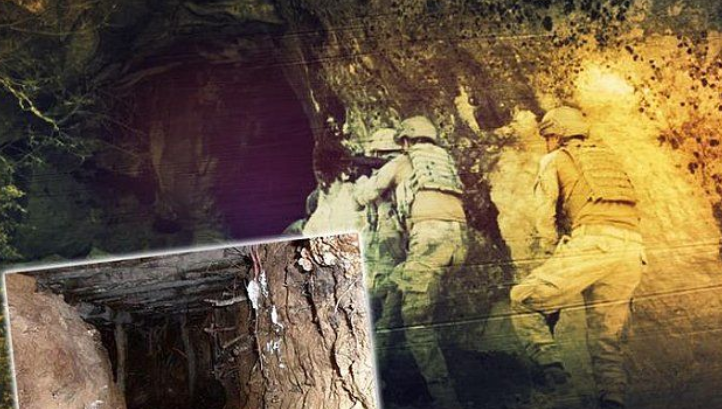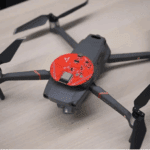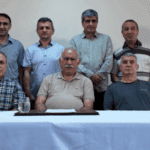A Turkish military mission in northern Iraq has ended in catastrophe, with 12 soldiers losing their lives—an incident that has not only ignited grief across the country but also intensified public scrutiny of the government’s military conduct. Initially, the Ministry of National Defense claimed that the soldiers succumbed to methane gas exposure during a cave operation tied to Pençe-Kilit (Operation Claw-Lock). However, contradictory statements, a lack of transparency, and growing evidence have led to public skepticism and calls for accountability at the highest levels of government.
The operation, which took place on July 6, involved a 19-member TSK team entering a cave previously used by the PKK. The Defense Ministry stated the mission aimed to recover the body of Lt. Nuri Melih Bozkurt, who was reportedly killed in 2022. But the question haunting many is: why now, three years later?
A Mission Shrouded in Mystery
The Defense Ministry’s narrative—first describing five dead, then quietly increasing the toll to twelve—was further clouded by the implausible cause given: methane gas poisoning. Experts and veterans immediately challenged this claim. Methane, while dangerous in confined spaces, does not normally cause instant death unless in extremely high concentrations. Moreover, such an explanation seems inadequate for a professional team of trained soldiers, equipped, theoretically, with detection tools and protective gear.
For many, this is not unfamiliar territory. The 2011 Roboski massacre, where 34 civilians were killed by Turkish airstrikes based on faulty intelligence, still haunts national memory. Sources from within the Turkish military and intelligence circles suggest the operation may have been based on a false tip-off, possibly a trap set by adversarial forces. Eyewitness accounts and leaked videos show that some of the soldiers involved had visited the same cave in March, leading observers to question what new intelligence justified this deadly July mission.
The suspicion that soldiers may have been exposed to a chemical agent—not methane—has gained traction among opposition lawmakers and independent journalists. No toxicology or autopsy reports have been released as of this writing, intensifying concerns of a cover-up.
Defense Minister Yaşar Güler has drawn particular criticism for vague and delayed statements. His decision to send AFAD and mining teams, rather than military rescue units, into the aftermath has been described as a sign of institutional confusion or weakness. Opposition parties have demanded a parliamentary investigation, though insiders expect the ruling coalition to block any inquiry.
A Political Powder Keg
The incident occurred during a politically sensitive week. Just as the operation unfolded, President Erdoğan was engaged in meetings with the pro-Kurdish DEM Party, reportedly to discuss a new phase in Turkey’s long-troubled Kurdish peace process. That the military operation—resulting in a spike in nationalist outrage and renewed anti-PKK sentiment—coincided with these talks has raised eyebrows.
In addition, the deaths of 12 Turkish soldiers during the cave operation in northern Iraq on July 6 came just days after reports of a drone strike between June 24 and 26, in which at least 10 Turkish soldiers, including officers, were wounded, allegedly by PKK-linked elements. The sequence of events has raised serious concerns: first, a targeted attack injuring multiple troops; then, a mysterious cave operation resulting in one of the deadliest single-day military losses in recent memory. All of this is unfolding on the eve of a planned PKK disarmament ceremony, expected to take place in Sulaymaniyah between July 10 and 12—a historic step toward de-escalation and a possible formal ceasefire.
Immediately after the incident, the PKK cancelled the live broadcast of their planned weapons-laying ceremony and barred the press from attending. Instead, the event will now be shown via pre-recorded video in a separate screening area—reportedly due to “security concerns.” The timing suggests that the PKK may fear the live ceremony could become a target for a similar attack—possibly orchestrated to sabotage the fragile peace process.
Institutional Rot and the Erosion of Military Professionalism
The tragedy has reignited concerns about the institutional decay of the Turkish Armed Forces (TSK) in the aftermath of the 2016 coup attempt and the sweeping purges that followed. Thousands of experienced officers and military doctors were expelled. The prestigious GATA military hospital system was dismantled, and military academies were closed or absorbed into civilian universities aligned with the ruling party.
Observers argue that this hollowing out of Turkey’s military capacity has left soldiers dangerously unprepared. “Where were the elite search-and-rescue units?” one veteran asked. “Why were miners from Zonguldak and AFAD responders used instead of trained special forces to extract the wounded?”
The lack of preparedness, both medical and tactical, has become a focal point of criticism, as has the use of inexperienced officers from the new defense university system, perceived by some as lacking the rigorous standards of the former military academies.
A Crisis of Trust
The deaths of 12 young soldiers in the darkness of an Iraqi cave have shaken the nation—not just as a heartbreaking loss, but as a painful reflection of deeper problems within the Turkish state. Grief is now mingled with anger and suspicion. Was it a chemical attack? A failed operation? Or something even more troubling from within? As officials stay silent or offer conflicting explanations, the public is left in a fog of uncertainty, searching for truth in a sea of unanswered questions.
Unless the government provides clear, verifiable evidence—including toxicology and autopsy reports, mission orders, and accountability for decision-makers—this event may mark a new low in the public’s already strained trust in Turkey’s institutions.
The question reverberating across the nation is simple:
“Who sent them, and why?”
By: News About Turkey (NAT)



